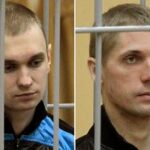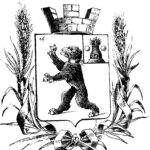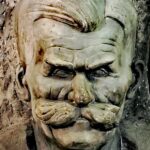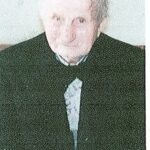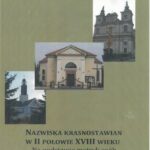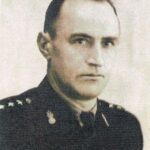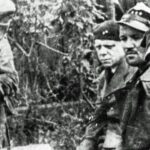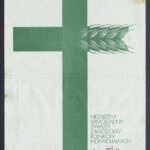Metro 2011 – crime and punishment
In our corner of diversity, a reflection by Raland Yelianevich on the Belarusian investigation from a decade ago into the terrorist attack in the Minsk metro. We invite you to read the article: The attack on the Minsk metro on April 11, 2011, i.e. the death penalty in six months. One case.
The coat of arms as a means of denationalization
In the nineteenth century, the Russian authorities carried out a campaign to develop and legalize new city coats of arms. Artur Górak, in his article Russian projects coats of arms for the cities of the Radzyń district in the second half of the 19th century, analyzes this heraldic undertaking of the Russian Empire, aimed at denationalization and colonization of Poles, using the example of the designs of coats of arms for the cities of Radzyń County, i.e. Radzyń and Międzyrzec. We invite you to read.
How the engineer Ciecióra changed the Polish national anthem
In December 1948, a member of the communist party, engineer Franciszek Ciecióra applied for a change of the Polish national anthem for the unification of the Polish Workers’ Party and the Polish Socialist Party. We invite you to read the edition of this document, 4 years older than the previously known attempt to change the Polish national anthem undertaken by Bolesław Bierut. Dariusz Magier considers how its creation was influenced by the atmosphere caused by the rulers’ propaganda, and to what extent was the personal character traits and life situation of the author of the application.
Residents of the village of Dawidy against both occupiers
We invite you to read the memories of the late resident of Dawid, a soldier of the Home Army and WiN in the Region of the II Radzyń District, Stefan Kozak entitled “Dawidy on the battle trail”. They shed a lot of light on the hitherto unknown facts about the activities of the independence underground fighting against the German and Soviet occupiers in the Radzyń poviat. The editor of the memoirs is Father Stanisław Dzyr.
The names of the inhabitants of Krasnystaw
In 2019, Dr. Irena Kulik’s scientific monograph entitled Names of inhabitants of the city of Krasnystw in the second half of the 18th century Based on the records of the deceased from the period 1748-1786. The book was discussed during the 1st International Onomastic Meetings. We present a self-presentation of the publication made by its author.
The post-war fate of a nationalist
Wiesław Charczuk faces the biography of Czesław Ługowski during the German occupation and the Sovietization of a soldier of the National Armed Forces, then a firefighter in Sokołów Podlaski repressed by the communist security apparatus.
Westerplatte dramas through the eyes of Józef Łopatniuk
We invite you to the story of Ernest Szum about the defense of Westerplatte in September 1939, seen through the eyes of the platoon platoon Józef Łopatniuk, from Glinny Stok in the commune of Siemień, the commander of the anti-tank gun platoon of the Military Transit Depot. In the background of the story, two most controversial issues concerning the described events unfold: the conflict of the command elite, affecting the attitudes and behavior of soldiers, and the attempted surrender on the second day of defense.
The Führer and the Jewish doctor Bloch
What was the relationship between Dr. Eduard Bloch and the founder of the ephemeral “Aryan” empire? How did this humble provincial Jewish doctor gain the recognition and even gratitude of Adolf Hitler? Should the sources of the German leader’s anti-Semitism be sought in the tragic circumstances associated with this acquaintance?
Wojciech Paszyński tries to find answers to these questions in his article entitled “Edeljude” and the miraculous salvation — the case of a close relationship between Adolf Hitler and the Jewish doctor Eduard Bloch (1872–1945).
Farmers and the Church
The pastoral ministry of farmers was one of the pastoral forms of the Church, clearly formative. This aspect cannot be overlooked when recreating the past from those years. For farmers associated with Solidarity, it was a space of support, allowing them to go through the most difficult period. Without this form of activity, Solidarity in the countryside practically had no chance of surviving – notes Eugeniusz Wilkowski in the article Pastoral care of farmers in the Lublin diocese in the 1980s. We invite you to read the latest text in our pages.
Evaluation results in the Index Copernicus database
We are pleased to announce that “The Humanities Yearbook of Radzyn Podlaski” has positively passed the evaluation process and is indexed in the ICI Journals Master List database for 2019.
The Index Copernicus Value (ICV) for 2019 was set at ICV 2019 = 70.90.
